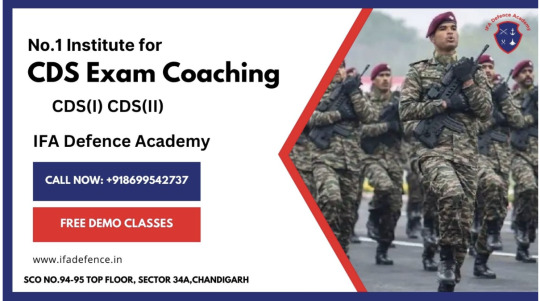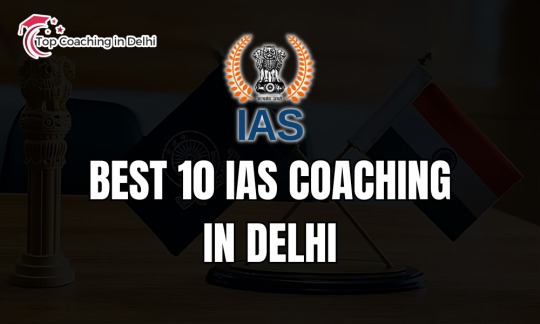#mistakes in upsc preparation
Explore tagged Tumblr posts
Text
Avoiding Common Mistakes When Preparing for the IAS Exam
Embarking on the journey to conquer the Indian Administrative Service (IAS) examination is akin to preparing for a marathon, where every step counts and preparation is key. However, even the most determined aspirants can inadvertently fall into pitfalls that not only cost them precious time but can also derail their entire strategy. Enter Vajirao IAS Academy, a beacon of guidance in the tumultuous sea of IAS exam preparation, committed to steering candidates clear of common yet overlooked mistakes. With its proven track record of nurturing top-ranking officers, Vajirao IAS Academy offers an insider’s perspective on how to navigate this challenging journey with finesse.
In this blog, we peel back the layers on some of these critical missteps through insights garnered from years of experience and success stories at Vajirao IAS Academy. From underestimating the importance of a well-structured study plan to overlooking the value of mock exams and feedback sessions—each mistake is dissected to offer you actionable strategies that promise not just preparation but mastery over your IAS exam endeavor. Let's dive into unlocking secrets that can transform your approach and help you avoid common traps set by one of India's toughest examinations.
#mistakes in upsc preparation#upsc current affairs#ias time management techniques#ias mock test series#best upsc study materials
0 notes
Text
Negative Habits to Avoid for UPSC Preparation
Imagine preparing for the UPSC exam is like setting off on a thrilling adventure. But just like any adventure, there are challenges to overcome. It takes a lot of hard work, sticking to your goals, and having a good plan. But, sometimes, even if you're really trying your best, you might find yourself doing things that could make it harder for you to succeed. In this guide, we'll explore common negative habits faced by UPSC aspirants and provide straightforward solutions to overcome them. By implementing these simple strategies, aspirants can navigate through challenges effectively and achieve success in their UPSC journey.
Procrastination - Putting Off Tasks

Procrastination is when we delay tasks or waste time on unimportant things. Many UPSC aspirants struggle with procrastination, which can lead to missed study sessions and last-minute pressure.
To overcome procrastination, break your study tasks into smaller, manageable parts. To create a sense of urgency, establish particular deadlines for every task. By taking small steps consistently, you can avoid procrastination and stay on track with your study schedule.
“You may delay, but time will not.”
― Benjamin Franklin
There are always distractions, if you allow them! Successful people remain optimistic and concentrated on their goals regardless of their surroundings. They stay focused. They avoid getting distracted, which is common in today's digital world. Social media, notifications, and other distractions can easily divert our attention away from studying.
To avoid distractions, create a dedicated study space that is free from potential distractions. Turn off notifications on your phone and use productivity tools to block distracting websites. Set specific times for studying and avoid multitasking. By minimizing distractions, you can improve focus and productivity during your study sessions.
Distractions - Losing Focus

“Work is hard. Distractions are plentiful. And time is short.”
― Adam Hochschild
Lack of Consistency

Consistency is really important for doing well in UPSC preparation. It’s key to success. However, many aspirants struggle to maintain a consistent study routine.
To overcome this, establish a daily study schedule and stick to it religiously. Make sure you stick to your study schedule and give it more importance than other things. Set realistic goals for each study session and keep checking how well you're doing. By making studying a habit and sticking to a consistent routine, you can maximize your productivity and progress in your UPSC preparation.
“Success isn't always about greatness. It's about consistency.
Consistent hard work leads to success. Greatness will come.”
― Dwayne Johnson
Neglecting Health and Adequate Sleep

UPSC preparation can be mentally and physically demanding, and many aspirants neglect their health in pursuit of their goals. However, neglecting your health can have negative consequences on your ability to study effectively. Sleep is essential for cognitive function, memory retention, and overall well-being. However, many aspirants neglect their sleep in favor of studying late into the night. This can lead to sleep deprivation, which can impair your ability to focus, concentrate, and retain information.
To prioritize your health, make sure to get an adequate amount of sleep each night. Aim for at least 7-8 hours of sleep to ensure that your mind and body are well-rested. In addition, make time for regular exercise and physical activity to reduce stress and improve overall well-being. Finally, don't forget to eat a balanced diet and stay hydrated to fuel your body and brain for studying.
Relying on One Study Method

Every aspirant has their own preferred study method, whether it's reading, taking notes, or practicing past papers. However, relying solely on one study method can limit your learning and comprehension.
To overcome this, try diversifying your study methods to engage different parts of your brain. For example, if you're used to reading, try incorporating more visual aids or discussing concepts with peers. Try out various methods of studying until you discover which one suits you the most. By diversifying your study methods, you can improve your understanding and retention of the material.
Negative self-talk can be dangerous to your confidence and motivation. Many aspirants struggle with self-doubt and fear of failure, which can hold them back from reaching their full potential.
To overcome negative self-talk, practice self-compassion and positive affirmations. Instead of focusing on your shortcomings, celebrate your achievements and strengths. Be around friends and family who support you and have faith in your skills. By cultivating a positive mindset and practicing self-love, you can overcome self-doubt and achieve success in your UPSC journey.
Negative Self-Talk - Self-Doubt

"One important key to success is self-confidence.
An important key to self-confidence is preparation."
― Arthur Ashe
Trying to Read Everything

UPSC aspirants are often overwhelmed by the sheer volume of reading material available. Many aspirants feel pressured to read every book and resource on a given topic, leading to stress and burnout.
To overcome this, focus on quality over quantity when it comes to reading. Prioritize essential books and resources that cover the core concepts and topics of the UPSC syllabus. Take notes as you read to help reinforce your understanding and retention of the material. Remember, it's better to thoroughly understand a few key concepts than to skim/go through numerous resources without grasping the core concepts.
Disorganization can hinder your ability to study effectively and efficiently. Many aspirants struggle to keep track of study materials, deadlines, and important dates.
To overcome this, create a study schedule and organize your study materials in a systematic manner. Use folders, binders, or digital tools to keep your study materials organized and easily accessible. Break down your study schedule into smaller, manageable tasks and set deadlines for each task. By staying organized, you can reduce stress and improve productivity in your UPSC preparation.
Lack of Organization

“For every minute spent organizing, an hour is earned.”
― Benjamin Franklin
Misplaced Study Groups

Study groups can be a valuable resource for UPSC aspirants, providing support, motivation, and shared knowledge. However, not all study groups are created equal, and some aspirants may find themselves in study groups that are not conducive to effective studying.
To overcome this, choose study partners wisely and find individuals who are serious and committed to their UPSC goals. Look for study groups or forums where you can engage with like-minded aspirants who share your dedication and enthusiasm for UPSC preparation. By surrounding yourself with supportive and motivated study partners, you can enhance your learning and stay on track with your UPSC goals.
Overcoming negative habits is essential for UPSC aspirants to succeed in their journey. By implementing simple strategies such as breaking tasks into smaller parts, minimizing distractions, maintaining consistency, prioritizing health, diversifying learning methods, fostering a positive mindset, finding a balance between work and study, focusing on quality reading, staying organized, choosing study partners wisely, using the internet judiciously, and prioritizing sleep, aspirants can navigate through challenges effectively and achieve success in their UPSC preparation. Remember, success in the UPSC examination requires dedication, perseverance, and a willingness to overcome obstacles. Keep pushing forward, stay focused on your goals, and believe in yourself—victory is within reach!
#upsc#education#upsc2024#upscpreparation#upscstudymaterial#quotes for upsc aspirants#quotes for students motivation#Misplaced Study Groups in UPSC Preparation#Lack of Organization in UPSC Preparation#Trying to Read Everything in UPSC Preparation#Negative Self-Talk - Self-Doubt#Relying on One Study Method#Neglecting Health and Adequate Sleep in upsc preparation#Lack of Consistency in upsc preparation#Distractions in upsc preparation#procrastination in upsc preparation#Procrastination#upsc syllabus ignorance#upsc exam strategy mistakes#ENSURE IAS coaching tips#upsc self-study bad habits#upsc time management mistakes#ENSURE IAS academy tips#upsc coaching center habits to avoid#upsc study routine mistakes#UPSC#bad habits for upsc exam#common mistakes in upsc preparation#ENSURE IAS preparation tips#negative habits for upsc aspirants
4 notes
·
View notes
Text
Top 10 Common Mistakes in UPSC Online Preparation & How to Avoid Them

Discover the top 10 common mistakes in UPSC online preparation and learn practical tips to avoid them. Boost your chances of success with this guide.
0 notes
Text
Top 5 Mistakes to Avoid During UPSC Preparation
Preparing for the UPSC Civil Services Examination is a challenging yet rewarding journey that requires strategy, discipline, and focus. Aspirants often make some common mistakes during their preparation, which can cost them precious time and effort. Avoiding these pitfalls can significantly improve your chances of clearing the exam. Here’s a list of the top five mistakes to avoid during UPSC preparation:

1. Lack of a Proper Study Plan
One of the biggest mistakes UPSC aspirants make is not having a well-structured study plan. The UPSC syllabus is vast, and without a proper strategy, you may feel overwhelmed. Some students begin studying random topics without understanding the sequence or importance of subjects.
How to Avoid:
Create a clear, subject-wise timetable.
Allocate time for revision and mock tests.
Prioritize topics based on their weightage in the exam.
Stick to your plan and monitor your progress regularly.
2. Ignoring the UPSC Syllabus and Previous Year Papers
Many aspirants start their preparation without thoroughly analyzing the syllabus and previous years’ question papers. This leads to inefficient study, as candidates may waste time on topics that are less important for the exam.
How to Avoid:
Always refer to the UPSC syllabus and have a copy with you.
Go through the past 5-10 years’ question papers to understand the UPSC Exam pattern.
Focus on topics that are repeatedly asked in both Prelims and Mains.
3. Relying on Too Many Study Materials
Another common mistake is relying on multiple sources for each subject. While there are plenty of books and resources available, too many can lead to confusion and information overload. This also affects revision, as revisiting multiple resources is time-consuming.
How to Avoid:
Stick to a few standard reference books and study materials.
Follow reliable sources like NCERTs, and supplement them with current affairs updates.
Revise from your chosen materials regularly to retain information.
4. Neglecting Answer Writing Practice
For Mains, simply acquiring knowledge isn’t enough. Writing answers effectively within the given time is crucial, yet many aspirants neglect practicing this. They may focus solely on reading and memorizing content, which can harm their performance in the actual exam.
How to Avoid:
Start practicing answer writing early, even if you haven’t completed the entire syllabus.
Join a UPSC test series or take time to write answers daily.
Focus on clarity, structure, and providing relevant examples in your answers.
5. Overlooking Mental and Physical Health
The pressure of UPSC preparation can lead some aspirants to neglect their mental and physical well-being. Long study hours without proper breaks, poor sleep, and lack of physical activity can lead to burnout and decreased productivity.
How to Avoid:
Incorporate regular breaks and relaxation into your study routine.
Engage in physical exercise, meditation, or yoga to keep your mind and body fit.
Ensure you get adequate sleep and maintain a healthy diet.
Conclusion:
Avoiding these common mistakes can make a significant difference in your UPSC preparation. A well-planned strategy, focus on revision, and maintaining a balanced lifestyle are key elements to succeeding in one of the toughest exams in the country. Stay consistent, stay focused, and avoid these pitfalls to achieve your IAS dreams.
#UPSC preparation mistakes#common mistakes in UPSC preparation#tips for UPSC success#UPSC study plan#how to clear UPSC exam#answer writing for UPSC#IAS preparation tips.
0 notes
Text
Time Management Tips from IAS Coaching Centers in Bangalore

Preparing for the UPSC Civil Services Examination is no easy feat. With a vast syllabus and fierce competition, every aspirant needs a solid strategy to make the most of their time. Fortunately, IAS coaching centers in Bangalore are known for their expert guidance, not only in academics but also in effective time management techniques. These tips can help you stay on track and maximize your productivity throughout your preparation journey.
Whether you’re attending classes at Bangalore IAS classes or self-studying, these strategies—adapted from the top UPSC coaching institutes in Bangalore—can transform the way you prepare.
1. Prioritize the Syllabus with Micro-Planning
Coaching experts often stress the importance of breaking the massive UPSC syllabus into smaller, manageable chunks. At renowned civil services coaching in Bangalore, aspirants are taught to divide their study plan into daily, weekly, and monthly goals.
For example, start your mornings with a focused review of a topic from polity or history and end your day solving practice questions. A micro-plan ensures you cover all subjects systematically, leaving no room for last-minute cramming.
2. Follow the 3-Hour Rule for Study Sessions
Many IAS academies in Bangalore recommend aspirants divide their day into focused 3-hour sessions with short breaks in between. The goal is to achieve deep concentration during these periods and complete substantial portions of the syllabus without burnout.
Faculty at Bangalore IAS classes often suggest aspirants take a short 10-minute break every hour to stay mentally fresh. This approach ensures you retain information better and avoid fatigue.
3. Make Revision a Daily Habit
One key piece of advice shared at the best IAS coaching in Bangalore is the importance of daily revision. Revisiting previously studied topics helps consolidate your knowledge and builds confidence. A popular strategy among coaching centers is the “50-10-40” method:
Spend 50% of your time studying new topics.
Dedicate 10% to quick revision of the previous day’s work.
Use the remaining 40% to attempt mock tests or write practice answers.
Aspirants who incorporate this method often find themselves better prepared for both the prelims and the mains.
4. Master the Art of Note-Making
In most UPSC coaching centers in Bangalore, faculty emphasize the importance of concise, self-prepared notes. Instead of relying solely on bulky textbooks or coaching materials, learn to distill complex topics into easy-to-revise points.
Top-performing students at IAS academy Bangalore recommend creating separate notebooks for subjects like current affairs, essays, and GS topics. Highlight important points and update them regularly to stay ahead.
5. Leverage Mock Tests and Analysis
One of the standout features of top UPSC coaching institutes in Bangalore is their extensive focus on mock tests. Regularly attempting tests under exam-like conditions helps improve time management, question prioritization, and accuracy.
However, the real trick lies in analyzing your performance. Coaching centers guide aspirants to evaluate their mistakes, learn from them, and refine their strategy. This practice ensures that you’re continually improving and saving precious time on exam day.
6. Balance Classes and Self-Study
A common challenge for aspirants at civil services coaching in Bangalore is balancing classroom learning with self-study. Faculty members recommend reviewing classroom notes the same day, ensuring you retain key concepts.
Additionally, allocate at least 4-5 hours daily for self-study, focusing on strengthening weak areas or exploring additional resources recommended by mentors at your coaching institute.
7. Maintain a Healthy Study-Life Balance
Top coaches at the best IAS coaching in Bangalore stress that time management isn’t just about study hours—it’s about overall productivity. A healthy routine that includes adequate sleep, physical activity, and relaxation is crucial for maintaining mental clarity during preparation.
Taking short walks, meditating, or engaging in a hobby can help refresh your mind and boost your efficiency when you return to your study desk.
8. Use Technology to Stay Organized
With advancements in digital tools, many UPSC coaching centers in Bangalore encourage aspirants to leverage apps for time management. Calendar tools, flashcard apps, and online test portals are invaluable for tracking progress and staying consistent.
For instance, you can use apps to schedule revision sessions, set reminders for coaching classes, or track your daily goals.
Why Time Management Matters for UPSC Success
Effective time management is the backbone of every successful aspirant's journey. The best civil services coaching in Bangalore goes beyond academics to teach students how to optimize their time. These techniques aren’t just limited to study hours—they prepare you to think critically, manage stress, and approach the exam with confidence.
As many toppers from IAS academy Bangalore point out, mastering time management can be the difference between clearing the exam and falling short. Start early, stay consistent, and adapt these expert tips into your daily routine.
2 notes
·
View notes
Text
Why Reading Newspapers Is a Game-Changer for UPSC Aspirants

Cracking the UPSC Civil Services Exam is not just about studying hard — it’s about studying smart. And when it comes to smart preparation, one habit truly sets toppers apart from the crowd: daily newspaper reading.
You might have heard your teachers say, Read the newspaper daily. But why exactly is it so important? Why do experts from Bajirao IAS Academy, the Top coaching institute for UPSC in Delhi, insist that newspaper reading can be the deciding factor between clearing Prelims, Mains, or missing the cut?
Let’s dive into how this simple habit can completely transform your UPSC preparation.
Why Daily Newspapers Matter for UPSC
The UPSC exam pattern — especially the Mains and Interview — focuses heavily on your understanding of current affairs, government policies, international relations, social issues, and your analytical thinking. Textbooks and coaching notes are essential, but they can never fully replace the real-time awareness that a newspaper provides.
Here’s how newspapers act like a secret weapon in your UPSC journey:
Updated Content: UPSC constantly evolves. Questions are framed on recent events.
Multidimensional Approach: One news item can connect to polity, economy, ethics, or environment.
Better Essay Writing: Reading editorials improves vocabulary, structure, and analytical depth.
GS Paper Mastery: Especially GS Paper 2 and GS Paper 3 are directly linked to current events.
Which Newspapers to Read?
There’s no shortage of newspapers out there, but UPSC aspirants should focus on the following:
The Hindu – Best for editorials, national news, and social issues
The Indian Express – Excellent for in-depth analysis, international relations, and science & tech
PIB (Press Information Bureau) – Official source of government policies and updates
Yojana & Kurukshetra (Monthly) – Great for essay and GS topics like agriculture, rural development
Most UPSC toppers agree that quality matters more than quantity. Read 1–2 newspapers well rather than skimming through 4–5.
What to Read in the Newspaper?
A common beginner mistake is trying to read every page. But UPSC demands a selective and smart approach. Here's what to focus on:
Front Page Headlines: National importance or landmark rulings
Editorials & Opinions: Diverse views, critical analysis, writing style
National News: Policies, schemes, parliamentary debates
International Affairs: Diplomacy, global organizations, treaties
Economy: Budget, RBI policies, inflation, employment data
Environment & Science: Wildlife, climate change, new technology
Legal Developments: Supreme Court judgments, amendments
Avoid Bollywood gossip, sports, or local political controversies unless they have national/international implications.
How Newspaper Reading Helps in Each UPSC Stage
Prelims
Factual updates from government schemes
Latest scientific developments
Reports and indices (HDI, CPI, etc.)
Mains
GS 2: Governance, Constitution, polity, social justice
GS 3: Economic development, environment, internal security
Essay: Rich content from editorials, quotes, and current themes
Ethics: Case studies and examples from real life
Interview
Your opinions are judged based on current events
You may be asked, “What’s your opinion on Uniform Civil Code?” or “What do you think about India’s stand on Israel?”
Newspapers help you form informed, balanced, and confident responses.
Tips from UPSC Experts and Toppers
"Reading newspapers builds the aspirant’s thinking process. UPSC doesn’t test memory, it tests maturity."
"Every day, I would dedicate one hour to reading 'The Hindu' and making notes. It helped me immensely in GS and Essay."
Bajirao IAS Academy, the Top coaching institute for UPSC in Delhi, emphasizes that:
"Newspaper reading is like daily exercise for the UPSC mind. It trains you to look at every topic from different angles — legal, ethical, economic, and social."
How to Make Notes from Newspaper
Making notes is crucial. Here’s a simple method followed at Bajirao IAS Academy:
Use a daily planner or digital tool (like Evernote/Notion)
Divide notes under GS Papers: GS 1, 2, 3, 4, Essay
Write short bullet points or Q&A format
Use highlighters or color codes
Revise weekly
Don’t copy the news article — extract the core issue, background, implications, and UPSC relevance.
Common Mistakes to Avoid
Reading newspapers like a school textbook
Skipping editorials
Not making notes
Spending too much time (ideally not more than 1 hour/day)
Ignoring revision of notes
Remember: It’s not about how much you read — it’s about what you absorb and how you apply it.
Small Habit, Big Results
In the world of UPSC, the smallest habits often lead to the biggest results. Newspaper reading may feel slow in the beginning, but over time, it shapes your understanding of the world, improves your language, sharpens your opinions, and builds your civil servant mindset.
With expert guidance from mentors at Bajirao IAS Academy, the Top coaching institute for UPSC in Delhi, thousands of students have transformed their UPSC prep by simply making newspaper reading a daily ritual.
So tomorrow morning, when you pick up your newspaper, don’t just read it — analyze it, feel it, question it.
That’s what future administrators do.
#Top coaching institute for UPSC in Delhi#upsc#upscmentorship#newspaper#news#upsc current affairs#upscindia#upsc2026#upsc2025
0 notes
Text
Top 10 Benefits of Practicing Mock Tests Before the Real Exam
Mock tests are a game-changer when it comes to competitive exam preparation. Whether you’re preparing for NEET, JEE, SSC, Banking, or UPSC, mock tests help you go from average to outstanding.
Here are the top 10 benefits of practicing mock tests before the real exam:
1️⃣ Familiarity with the Exam Pattern
Mock tests follow the exact format of the actual exam. Practicing them helps you understand the structure, marking scheme, and question types — no surprises on D-day!
2️⃣ Time Management Skills
With a fixed time limit, mock tests teach you how to manage your time wisely and attempt maximum questions without rushing or leaving any section out.
3️⃣ Identify Strengths & Weaknesses
Mock tests highlight which topics you’re good at and where you need improvement, allowing focused revision instead of random study.
4️⃣ Improved Speed and Accuracy
Regular practice improves your speed of solving questions and reduces silly mistakes — both crucial for competitive exams.
5️⃣ Boost in Confidence
Mock tests simulate the real exam, reducing anxiety. The more you practice, the more confident and exam-ready you become.
6️⃣ Real-Time Performance Analysis
Platforms like Test Series Pro offer instant feedback, detailed analytics, and rank comparison, giving you a complete performance snapshot.
7️⃣ Revision of Entire Syllabus
Full-length mocks ensure you cover the entire syllabus regularly, which is better than cramming topics in the last few days.
8️⃣ Strategic Planning
With mock test data, you can plan a better attempt strategy: which sections to attempt first, how much time to allocate, etc.
9️⃣ National-Level Competition
Online test platforms let you compare your score and rank with thousands of other aspirants, giving you a clear picture of where you stand.
🔟 Better Retention & Recall
Practicing in an exam-like setting enhances retention of concepts and makes it easier to recall during the actual exam.
✅ Start practicing now with Test Series Pro’s free and premium mock tests and unlock your full potential!
0 notes
Text
NDA Preparation Strategy from Class 11 – Step-by-Step Plan
The National Defence Academy (NDA) is one of the most prestigious defense institutions in India. It also attracts young aspirants who aspire to serve the nation. Even from Class 11, many students begin their preparation to acquire a foundation strong enough to help them.
But, while they mean well, many candidates make mistakes that commonly undermine their performance in the NDA exam. If you want to know how to prepare for NDA from class 11 this blog will give you pointers on what not to do and how to prepare better.

1. Ignoring the Basics of Mathematics and General Ability
Mathematics and General Ability are courses that many of our students pay attention to only advanced topics without paying attention to basic concepts. Such a mistake makes it difficult to solve complex questions during the NDA exam. The mathematics section depends primarily on strong fundamentals, whereas GAT is concerned with English, general knowledge, and science.
Solution:
Strengthen the basic skills if you want to learn to prepare for NDA from class 11. Regularly revise Class 11 Mathematics topics like Algebra, Trigonometry, and Calculus. Various ways, such as reading newspapers, news channels, etc., are the various ways to improve English and general knowledge.
2. Not Following a Proper Study Plan
There are many students who don’t have a structured plan, and they prepare for NDA, and both subjects are not covered in the complete syllabus. They are wasting time and struggling to manage their studies at school and studies in NDA without a proper study schedule.
Solution:
Outline a well-structured study plan that includes all the NDA subjects. Use enough time for mathematics, English, and general knowledge. Set daily goals and weekly goals to see the progress. Class 11 academics and follow a routine and NDA preparation: This discipline prepares you for thorough preparation and lessens last-minute stress.
3. Ignoring NCERT Books
Coaching material is relied upon by some aspirants, but few people give importance to NCERT books. This is a big mistake because nobody can compare more than the NCERT books for NDA preparation. The Mathematics and Science sections are very much based on the NCERT content.
Solution:
NCERT books for Class 9-12 should be commenced with the start of preparation for NDA. After this, start having a look at reference books and practice papers. This way represents thorough knowledge and better problem-solving.
4. Not Practicing Previous Year Papers and Mock Tests
In many ways, the reason why students don’t solve NDA previous year question papers and mock tests is that they fail to solve them and end up with poor performances in the exam. They battle with time management and do not have patterns without regular practice.
Solution:
Solve at least 10 to 15 years’ worth of previous year NDA papers. To improve accuracy and speed, attempt mock tests weekly. Focus on the weak areas that need working on and consistently so. Mock tests help aspirants to get more confident and to prepare for real exam conditions.
5. Underestimating the SSB Interview
Services Selection Board (SSB) interview preparation is neglected by most NDA aspirants, who fix their whole preparations for the written exam held by UPSC. The leadership, personality, and decision-making skills administered by means of this interview are very important in the selection stage.
Solution:
Start SSB interview preparation early. They build communication skills through public speaking and debates. It also involves reading about current affairs and defence-related matters. Maintain physical fitness as SSB has physical fitness assessments. In order to increase confidence and prepare oneself for interviews, group discussions, and psychological tests are practiced.
6. Neglecting Physical Fitness
Among NDA aspirants, there is not much focus on the physical fitness to which applicants need to give importance. Failing the medical test means disqualification, and the NDA demands very high endurance, strength, and medical fitness.
Solution:
Run, do push-ups, and do more endurance-based exercise daily. Ensure proper sleep and continue a healthy diet. Junk food and too much screen time are to be avoided. Go out and engage in some outdoor sports to improve stamina and overall fitness.
7. Lack of Consistency and Motivation
Conclusion
If you begin how to prepare for NDA from class 11, you’ll have ample time to create a firm footing. Although it is necessary to avoid making common mistakes such as leaving the basics, neglecting NCERT books, or underestimating the SSB interview.
Consistency, a structured study plan, and time spent on academics and physical fitness can help you boost your chances of success. The key to mastering the exam pattern and using time well is regular practice through mock tests and previous year papers.
Shoorveer Academy is an excellent place for aspirants for NDA, as it helps them with expert coaching and mentorship. Start your journey towards realising your dream of serving the nation by joining Shoorveer Academy today.
0 notes
Text
How Do UPSC Toppers Stay Motivated Through the Journey?

Preparing for the UPSC Civil Services Examination is not just an academic challenge—it’s an emotional and mental marathon. With months, sometimes years, of preparation, it’s easy to feel overwhelmed. So, how do UPSC toppers stay motivated through the ups and downs of this demanding journey?
One of the key strategies toppers use is having a strong ‘why’. Whether it’s a dream to serve the nation, a desire to bring change, or personal inspiration, their reason becomes their fuel. They revisit their purpose regularly to stay focused and push through low moments.
Another important factor is goal-setting. Toppers break the massive syllabus into daily, weekly, and monthly targets. Achieving small goals gives them a sense of progress and keeps them going. It helps avoid burnout and creates a rhythm to their preparation.
Most successful candidates also understand the value of balance. It’s not just about studying 14 hours a day—it’s about staying consistent and sane. They take breaks, exercise, stay in touch with friends, or practice meditation. Mental health is a priority.
One underrated yet powerful motivator is peer support and mentorship. Being part of a focused study group or attending regular classes at the Best UPSC Coaching in Bhopal helps them stay connected, inspired, and accountable. Interacting with teachers, mentors, and fellow aspirants keeps them updated and motivated.
They also learn to embrace failure. Most toppers don’t clear UPSC in their first attempt. Instead of giving up, they learn from mistakes, improve their strategy, and come back stronger. This resilience becomes their biggest strength.
Lastly, toppers surround themselves with positive influences—be it motivational books, inspiring videos, or stories of other civil servants. They avoid distractions like social media and negative people, keeping their minds focused on the goal.
In short, UPSC toppers stay motivated not by magic, but by being purposeful, organized, and mentally strong. If you're starting your UPSC journey, remember: it's not just what you study, but how you stay inspired that makes the difference. Joining the Best UPSC Coaching in Bhopal can provide not just knowledge, but the structure, motivation, and support system to keep you going till the end.
0 notes
Text
Preparing for the UPSC Civil Services Examination is a monumental challenge, and choosing the right UPSC coaching in Delhi can be a game-changer. Delhi is a hub for IAS aspirants, but many candidates fall into common traps that hinder their progress. If you're planning to enroll in coaching. Get more information please click here.
0 notes
Text
How to Crack CDS in First Attempt – A Complete Guide by IFA Defence Academy
Cracking the Combined Defence Services (CDS) exam in the very first attempt is a dream for many young aspirants who want to serve the nation with pride and honor. The exam, conducted by the Union Public Service Commission (UPSC) twice a year, is highly competitive and demands a well-planned strategy, consistent effort, and the right guidance.

In this comprehensive blog post, we at IFA Defence Academy — a leading name for CDS coaching in Chandigarh — will walk you through a detailed roadmap to clear the CDS exam in your first attempt. Whether you're still in college or have just graduated, these tips will set you on the right track.
Understanding the CDS Exam Structure
Before diving into preparation strategies, it is crucial to understand the exam pattern:
For IMA, INA, and AFA:
English – 100 Marks
General Knowledge – 100 Marks
Elementary Mathematics – 100 Marks
For OTA (Officers’ Training Academy):
English – 100 Marks
General Knowledge – 100 Marks
All papers are objective type with a negative marking of 1/3rd for every wrong answer. Understanding this structure helps tailor your preparation accordingly.
Step 1: Make a Realistic Study Plan
Planning is the first step to success in any competitive exam.
Divide your syllabus: Break the topics into daily or weekly goals.
Set achievable targets: Don't overburden yourself. Instead, focus on consistency.
Mix subjects daily: Instead of studying one subject per day, study 2–3 subjects to avoid monotony.
At IFA Defence Academy, our faculty helps students create personalized study plans which is one of the reasons we're trusted for CDS coaching in Chandigarh.
Step 2: Strengthen the Basics
A common mistake many aspirants make is jumping directly to mock tests and shortcuts. Start by building strong conceptual clarity, especially in:
English Grammar & Vocabulary
Current Affairs & Static GK
Fundamentals of Arithmetic, Algebra, Trigonometry, and Geometry
Books like NCERTs (Classes 6 to 10 for Maths) and Lucent for GK are great to begin with. For English, Wren & Martin and newspaper editorials can be excellent resources.
Step 3: Practice Previous Year Papers
One of the most effective strategies is to analyze and solve previous year papers:
Understand question patterns and difficulty levels.
Identify frequently asked topics.
Practice time management during exam conditions.
IFA Defence Academy provides a repository of solved previous year papers as part of its comprehensive study package — an added advantage of enrolling in the best CDS coaching in Chandigarh.
Step 4: Take Regular Mock Tests
No preparation is complete without evaluating your progress. Enroll in a well-structured test series that mimics the actual exam.
Attempt at least one full-length test weekly.
Analyze your performance after every test.
Work on weak areas before the next test.
Mock tests improve speed, accuracy, and time management — key elements in clearing the CDS exam on your first try.
Step 5: Focus on Physical Fitness for SSB
Cracking the written exam is only half the battle. The SSB Interview is equally crucial and includes psychological tests, group discussions, physical tasks, and personal interviews.
IFA Defence Academy emphasizes complete training, including SSB interview preparation, group tasks, and personality development, making it a preferred choice for CDS coaching in Chandigarh.
Tips for physical readiness:
Jogging or running daily
Building upper body strength
Practicing group activities and leadership exercises
Step 6: Stay Updated with Current Affairs
The General Knowledge section can be a game-changer. To score well:
Read newspapers like The Hindu or Indian Express daily.
Watch news analysis on channels like Rajya Sabha TV.
Prepare monthly current affairs notes (or follow a reliable monthly magazine).
IFA Defence Academy provides daily and weekly GK capsules tailored specifically for CDS aspirants.
Step 7: Maintain a Positive Mindset
Staying confident and mentally strong is as important as academic preparation.
Avoid burnout — take regular breaks.
Stay motivated by reading biographies of defence personnel.
Surround yourself with like-minded aspirants.
At IFA Defence Academy, we believe that mentorship, peer interaction, and a disciplined environment are key to transforming potential into performance.
Why Choose IFA Defence Academy for CDS Coaching in Chandigarh?
Here’s why hundreds of students trust us every year:
Experienced Faculty: Retired defence officers and UPSC experts.
Updated Study Material: Designed as per the latest exam trends.
Personalized Mentorship: One-on-one guidance for each student.
Regular Doubt Sessions & Tests: To keep progress in check.
SSB Interview Preparation: Integrated into the coaching program.
If you're serious about your CDS journey, joining a reliable institute like IFA Defence Academy for CDS coaching in Chandigarh gives you a strategic edge.
Final Thoughts
Cracking the CDS exam in your first attempt is entirely possible if you have:
A clear strategy
Strong fundamentals
Dedicated practice
Right guidance
IFA Defence Academy is here to support you at every step of this journey. If you’re looking for the most trusted and results-driven CDS coaching in Chandigarh, your search ends with us.
Start early, stay focused, and success will follow.
Ready to start your journey toward a career in the Armed Forces?
Get in touch with IFA Defence Academy today — your first step toward wearing the uniform with pride.
0 notes
Text
Effective English Learning Tips for Competitive Exams

English is a core component of most competitive exams here is the question how to learn English?. From government job tests like SSC, UPSC, and bank exams to global entrance tests such as IELTS, TOEFL, and GRE, English plays a vital role in assessing a candidate’s language ability. Excelling in English can make a significant difference in your overall score. Here are some practical and easy-to-follow tips to improve your English skills for competitive exams.
Way to Learn English
1. Know the Syllabus and Pattern First
The first step is to study the exam’s English section pattern. Each exam tests different language areas grammar, reading comprehension, vocabulary, or writing skills. Review past papers and sample tests to understand the structure. Once you know the focus areas, you can organize your preparation accordingly and avoid wasting time on irrelevant topics.
2. Start with Grammar Fundamentals
Grammar is essential for answering multiple-choice questions and writing tasks. Without strong grammar skills, even basic questions can be tricky. Begin with foundational topics and gradually move to advanced rules.
Key grammar topics to cover:
Nouns, pronouns, and verbs
Tense forms and agreement rules
Prepositions and conjunctions
Articles (a, an, the)
Voice and speech transformations
Daily grammar practice, even for 30 minutes, can make a noticeable difference over time.
3. Grow Your Vocabulary Every Day
A rich vocabulary helps in solving reading comprehension questions and improves writing performance. Learn new words consistently rather than trying to memorize lists in one go.
Smart ways to build vocabulary:
Learn 5 new words daily along with meanings
Note synonyms, antonyms, and usage examples
Use apps like WordUp or Vocabulary Builder
Practice with flashcards or online quizzes
Read newspapers and underline unknown words
Revise weekly to retain what you’ve learned. Try to use the words in your daily conversations or writing practice.
4. Sharpen Your Reading Comprehension
Most competitive exams include reading comprehension to evaluate how well you understand written content. Strengthening this skill helps you quickly grasp ideas, interpret information, and answer questions correctly.
Ways to Improve Reading:
Read editorial sections in newspapers and informative articles daily to expose yourself to rich vocabulary and complex sentence structures.
Practice comprehension passages with a timer to build speed and maintain focus under exam conditions.
Learn the techniques of skimming to understand the general idea and scanning to locate specific details quickly.
Pay close attention to the tone, purpose, and central message of the text.
After reading, try to summarize key points in your own words without looking back at the passage.
Improving your reading comprehension not only boosts exam performance but also enhances your analytical and critical thinking abilities.
5. Enhance Your Writing Style
Some competitive exams require essay writing, précis, or letter writing. Even if writing isn’t directly tested, it supports overall language mastery. Writing practice builds clarity, grammar accuracy, and coherence.
To improve writing:
Start with short essays or paragraphs
Focus on sentence structure and logical flow
Avoid complex or unclear expressions
Keep a writing journal to track improvement
Edit and rewrite to refine your drafts
Writing every day, even for 10–15 minutes, helps you become more comfortable with expressing thoughts in English.
6. Solve Mock Tests Regularly
Mock tests are essential for understanding your strengths and weaknesses. Attempting practice papers in a timed environment helps improve speed and accuracy.
After each mock test:
Review all incorrect answers
Clarify the reasons behind your mistakes
Make notes for difficult questions
Work on time management strategies
Use platforms like Testbook, Adda247, or other free resources to access reliable English mock tests.
7. Practice Listening and Speaking Daily
Although not all exams test speaking or listening, these skills contribute to overall language fluency. They also help in exams like IELTS or TOEFL.
Ways to boost these skills:
Listen to English news, audiobooks, or podcasts
Speak with peers or tutors in English
Record and listen to your speech for self-feedback
Watch movies or series with subtitles
Consistency is the key. Even 20 minutes a day can make you more confident and fluent over time.
Success Comes with Daily Effort
To master English for competitive exams, a focused and consistent approach is essential. Set small goals each day and stick to a routine that includes grammar, reading, vocabulary, and mock test practice. Gradual progress will lead to strong results. Remember, fluency and accuracy both matter, and with steady effort, you’ll build the skills needed to crack the English section of any competitive exam.
0 notes
Text
Top 7 Mistakes to Avoid While Preparing for NDA 2 2025 Exam
Top 7 Mistakes to Avoid While Preparing for NDA 2 2025 Exam | Shield Defence Academy
The NDA 2 2025 Exam is more than just a test—it’s your ticket to becoming a proud officer in the Indian Armed Forces. Thousands of aspirants dream of clearing it, but only a few make it. Why? Most candidates make basic but costly errors that could’ve been easily avoided. If you’re serious about your goal, then understanding the Top 7 Mistakes to Avoid While Preparing for NDA 2 2025 Exam is your first real step toward success.
Why Candidates Fail Despite Hard Work
You might be putting in hours every day, burning the midnight oil, and skipping weekends—but still not getting the results. Why? Because effort without strategy leads nowhere. Mistakes like ignoring the syllabus or neglecting your physical fitness can undo months of hard work. Don’t let these slip-ups sabotage your dream.

Top 7 Mistakes to Avoid While Preparing for NDA 2 2025 Exam
1. Ignoring the Syllabus and UPSC Pattern
This is the most common blunder. Aspirants randomly start preparing from books or YouTube videos without even glancing at the official UPSC NDA syllabus.
Why it matters: UPSC sticks to a defined pattern. If you know what topics to expect, you can study smarter, not harder.
Fix it: Download the latest NDA syllabus and analyze previous years’ papers to understand which topics are most important.
2. Poor Time Management
Balancing NDA prep along with school, tuition, or college is tough. But what’s worse is not having a daily routine.
Symptoms of poor time management: Cramming at the last minute, skipping subjects, or focusing only on favorites.
Solution: Create a timetable that includes study time, breaks, revision, and mock tests. Stick to it!
3. Not Practicing Mock Tests Regularly
Many students underestimate the power of mock tests. They think revising the syllabus is enough. Wrong!
Why mocks help: They train your brain to handle pressure and time constraints.
Shield Defence Tip: Take at least one full mock test every week. After the test, analyze what went wrong and improve.
4. Overlooking English and General Ability Test (GAT)
GAT makes up 600 out of 900 marks in the written exam. Yet, most students only focus on Maths.
Common mistake: Ignoring English grammar, comprehension, current affairs, and science.
What to do: Read newspapers daily, solve English MCQs, and practice current affairs weekly.
5. Skipping NCERT Books
NCERT books from Class 6 to 12 form the backbone of NDA preparation, especially for Maths, Physics, Chemistry, and Geography.
Why students skip them: They think NCERTs are too basic or outdated.
Reality check: Around 60% of NDA questions are NCERT-based. Don’t make the mistake of skipping them.
6. Avoiding Physical Fitness and Medical Standards
NDA isn’t just about passing the written test. You also need to clear SSB interview and medical fitness.
Blunder: Ignoring fitness until the last moment.
Fix: Start running, do push-ups, sit-ups, and improve your stamina now—not after the written test.
7. Lack of Guidance and Coaching
Self-study is great, but sometimes, you need expert guidance to avoid wasting time and effort.
Why it matters: You need someone to correct your mistakes, track your progress, and provide direction.
Solution: Join reputed coaching like Shield Defence Academy where you get subject-wise coaching, mock tests, physical training, and SSB guidance.
How to Rectify These Mistakes
Here’s how to bounce back stronger:
Make a fresh study plan aligned with the UPSC syllabus.
Dedicate 2 hours to GAT and English every day.
Practice 3–4 mock tests monthly.
Start your day with a physical workout.
Refer to NCERT books for basic understanding.
Take regular feedback from mentors or join structured coaching.
Why Shield Defence Academy Recommends Fixing These Mistakes Early
Shield Defence Academy has trained hundreds of NDA qualifiers, and we’ve seen the same pattern every year—those who avoid these mistakes crack the exam confidently.
What we offer:
NDA Foundation Courses
NDA + Schooling Program
Physical Fitness Sessions
Daily Mock Tests
Personal Mentorship and Doubt Clearing
Avoiding these mistakes with us ensures a much higher chance of success.
Additional Tips for NDA 2 2025 Preparation
Use a planner: Track your goals and achievements daily.
Group Study: Helps with peer learning and motivation.
Stay updated: Watch weekly current affairs videos or read monthly compilations.
Use smart apps: For vocabulary, current affairs, and Maths formulas.
Reward yourself: Celebrate small wins to stay motivated.
Conclusion for Top 7 Mistakes to Avoid While Preparing for NDA 2 2025 Exam
Success in the NDA 2 2025 Exam isn’t just about hard work—it’s about smart preparation. Knowing the Top 7 Mistakes to Avoid While Preparing for NDA 2 2025 Exam will save your precious time and effort. So, now that you know what not to do, are you ready to prep like a future officer?
Let Shield Defence Academy be your partner in this mission. From coaching to mentoring to physical training—we’ve got your six!
FAQs
1. What is the right age to start NDA preparation?
The ideal time to start is after Class 10 if you’re aiming for NDA after 12th. Early preparation gives you an edge.
2. Is coaching necessary to crack NDA 2 2025?
Not mandatory, but coaching offers structured learning, mock tests, and expert guidance—especially helpful if you’re serious about success.
3. How can I manage school and NDA preparation together?
Make a weekly timetable, focus on overlapping subjects (Maths, Science), and use weekends for full-length mock tests.
4. Is English really that important in the NDA exam?
Absolutely! English is part of GAT, which carries the highest weightage. Grammar, comprehension, and vocabulary are key scoring areas.
5. How does Shield Defence Academy help in NDA preparation?
From academics to physical fitness, we provide comprehensive coaching, regular assessments, doubt sessions, and SSB prep all under one roof.
#ndatraining#cdstraining#ssbtraining#ssb interview#afcatcoaching#nda#nda training#bestndacoachinginlucknow#navy#airforcetraining
0 notes
Text
Free vs Paid CDS Mock Tests – Pros & Cons
The CDS (Combined Defence Services) exam, conducted by the UPSC, is one of the most prestigious and competitive gateways to join the Indian Armed Forces. With lakhs of aspirants appearing for limited seats, your preparation strategy must be sharp, smart, and strategic.
One of the most powerful tools for CDS preparation is the CDS Mock Test. But aspirants often ask:
Should I go with free mock tests or invest in paid ones?
Let’s break it down, compare both options, and show how EaseToLearn.com bridges the gap perfectly.
Also visit: JEE Main Mock test
✅ Free Mock Tests – The Starting Point
🔹 Pros:
Zero Cost, Zero Risk Free mock tests are perfect for beginners or budget-conscious aspirants who are just starting out.
Quick and Easy Access No need for login or payment. Just open and solve—a good way to get familiar with the CDS exam pattern.
Initial Self-Assessment Free tests can give you a basic idea of where you stand in terms of preparation.
Test the Waters Before investing time or money, you can evaluate the format and difficulty level of CDS questions.
Also visit: AFCAT mock tests
🔸 Cons:
Limited Practice Material Free resources usually offer just 1 or 2 full-length tests, lacking topic-wise depth.
Lack of Analysis Most free tests don’t provide performance breakdown, time tracking, or improvement recommendations.
Outdated or Generic Questions You might face questions that are not aligned with the current CDS pattern or difficulty.
No Personalization or Progress Tracking You won't know if you're improving or just repeating the same mistakes.
Also visit: NEET UG Mock Test
💰 Paid Mock Tests – Serious Practice for Serious Aspirants
🔹 Pros:
Real Exam Simulation Platforms like EaseToLearn offer mock tests that mirror the actual CDS exam format, difficulty level, and timer-based interface.
Detailed Analytics & Feedback EaseToLearn provides AI-powered analysis—track your accuracy, speed, weak topics, and overall performance.
Customizable Practice With features like the Smart Test Generator, you can build your own mock tests based on topics, difficulty, or previous mistakes.
Topic-Wise & Section-Wise Tests Prepare for English, General Knowledge, and Elementary Mathematics section-by-section with in-depth practice.
Performance Tracking Over Time Monitor your growth with performance graphs, score trends, and rank predictions.
Daily Practice Plans & Reminders EaseToLearn offers structured schedules and daily test recommendations—helping you stay disciplined.
Also visit: CUET UG Mock Test
🔸 Cons:
Cost Involved While not free, platforms like EaseToLearn offer affordable plans tailored for serious aspirants.
Feature Overload If you’re not focused, you may feel overwhelmed by the number of tools and options.
Also visit: NDA Mock Test
🧠 What Makes EaseToLearn the Best of Both Worlds?
✅ Free CDS Mock Tests to try before you commit
✅ Paid Plans with smart features and AI tools
✅ Full-Length + Topic-Based Tests
✅ Re-attempt old tests for self-improvement
✅ Instant Results & Performance Reports
Whether you’re just starting your CDS journey or aiming to boost your final performance—EaseToLearn has a plan for you.
🏁 Final Comparison – Which One Should You Choose?
Feature Free Mock Tests Paid Mock Tests
Cost₹ 0 Budget-friendly plans
Quality Basic High-quality & updated
Analytics No Yes – AI powered
Customization No Yes – Smart Test Generator
Suitable For Starters Serious Aspirants
🚀 Ready to Boost Your CDS Exam Preparation?
Whether you're flying solo or preparing under guidance, mock tests are non-negotiable. And if you want personalized practice with real-time insights, EaseToLearn is your best ally.
🎓 Try a free CDS mock test or unlock full features at www.EaseToLearn.com
Train smart. Practice with precision. Crack CDS with confidence.
0 notes
Text
UPSC Success = Static + Current Affairs + Right Mentorship from the Best Coaching in Arunachal!

Every UPSC aspirant knows one thing for sure: cracking the civil services exam is not about studying hard, it’s about studying smart. But what does studying smart actually mean? In simple words, it means understanding the perfect mix of Static + Current Affairs, and getting the right mentorship from experienced teachers. That’s the formula followed by toppers — and if you’re preparing in the northeast, it’s the exact strategy taught at the Best Coaching for UPSC in Arunachal, Bajirao IAS Academy.
What is Static and What is Current Affairs?
Before we go deep, let's first understand the difference:
Static: These are the concepts that don’t change over time. Subjects like Polity, History, Geography, Economy basics, etc., fall under this category. NCERTs and standard books cover these topics.
Current Affairs: These include all recent developments happening around us — nationally and internationally. News related to environment, polity decisions, court verdicts, government schemes, international relations, etc.
Both sections are inseparable for UPSC success. Questions in Prelims and Mains are often a mix of static concepts applied in current contexts.
Why Static Alone is Not Enough
Many beginners make the mistake of focusing only on NCERTs or standard books. But UPSC today is more dynamic. For example:
A question about Article 370 might be static, but its revocation in 2019 is a current affair.
Basic knowledge of climate change is static, but COP summits and India’s climate policies are current.
Even if your static preparation is strong, not being updated with current affairs can cost you heavily.
Why Current Affairs Alone is Also Risky
Some students go too deep into daily news and ignore building strong conceptual foundations. But without understanding static concepts, you won’t be able to connect the dots.
For example:
Reading about GST council decisions without knowing how GST works will confuse you.
Understanding India’s foreign policy needs basic IR theory.
How Toppers Use Static + Current Affairs Together
Let’s look at how UPSC toppers study smartly:
1. Integration of Notes
Toppers don’t maintain two completely separate sets of notes. They connect the static and current. Example:
While studying Environment from Shankar IAS Book, they add newspaper clippings about recent disasters, reports, and government initiatives.
2. Linking Topics
They learn how to link current events with syllabus keywords. Example:
A question on India’s Disaster Management Policy might link to the recent floods in Assam.
3. GS Mains Answer Writing
Toppers use current examples to strengthen static-based answers. Example:
In an answer on Indian Judiciary (Static), they might cite recent judgments (Current Affairs).
This method is a core part of teaching strategy at Bajirao IAS Academy, the Best Coaching for UPSC in Arunachal, where students are trained to think like a topper.
"UPSC doesn’t want to test memory, it wants to test awareness. The blend of static with current is where real preparation begins."
"Polity is a static subject, but paper questions often ask about latest bills, Supreme Court decisions or laws. That’s why current events must always be read with context."
"In interviews, what you say is judged by how updated you are. One can’t impress the board without showing awareness about ongoing national issues."
How Bajirao IAS Academy Helps Students Excel
If you’re an aspirant from Arunachal Pradesh or the northeast, you may wonder how to get Delhi-level preparation without leaving your home state. That’s where Bajirao IAS Academy comes in:
Expert Faculty
Mentors with years of UPSC teaching experience deliver lessons with updated examples and real-world connections.
Integrated Notes System
Class notes combine NCERT + advanced material + daily current affairs. This saves time and builds strong linkages.
Daily Current Affairs Classes
Instead of just reading news, students are taught how to analyze it from UPSC’s angle.
Mock Tests + Answer Writing Practice
Daily and weekly tests include questions where static + current are mixed, just like the real UPSC exam.
Personal Mentorship
Every student gets mentor support to plan, review, and improve their strategy.
Smart Tips for UPSC Students
Here are some practical tips to help you master both Static and Current Affairs:
Follow One Standard Newspaper Daily – The Hindu or Indian Express.
Make Short Notes – Daily news should be summarized in your own words.
Keep the Syllabus Nearby – Relate news articles to GS topics.
Revise Current Affairs Monthly – Use compilations from trusted sources.
Don’t Skip Static Revision – Re-read NCERTs and standard books.
Join a Good Coaching Institute – If you're in the northeast,
The Winning Formula
There’s no shortcut to UPSC success, but there is a smart path. And that is:
Static + Current Affairs + Right Mentorship = UPSC Success
If you’re just starting out or feeling lost in your preparation, take this as your sign to get guided the right way.
With the support of a strong institution like Bajirao IAS Academy, recognized as the Best Coaching for UPSC in Arunachal, and the right strategy, your UPSC dream is not far away.
Start early. Study smart. Stay consistent.
And always remember: Knowledge becomes power only when you apply it in the right way.
All the best, future officers!
#upsc current affairs#static#current affairs#best upsc coaching in Arunachal#upsc2026#upscaspirants#best upsc coaching in india#upscmentorship
0 notes
Text
Best 10 IAS Coaching Institutes in Delhi for 2025–2026 [With Fees & Results]

https://topcoachingindelhi.com/upsc/best-ias-coaching-in-delhi/
Are you aspiring to become an IAS officer and serve the nation in 2025? If so, you're preparing for one of the toughest and most prestigious exams in India — the UPSC Civil Services Examination. Every year, lakhs of candidates compete for a limited number of positions, making it essential to prepare not just hard, but smart.
One of the most important factors in your UPSC journey is choosing the right IAS coaching institute. Whether you are a beginner or a repeat aspirant, expert guidance can make a huge difference. The right coaching can help you stay motivated, avoid common mistakes, and follow a structured study plan that covers all important topics. Quality faculty, comprehensive test series, and effective mentoring can significantly boost your chances of success.
Delhi has been the epicenter of UPSC preparation for many years. The city hosts some of the most reputed coaching centers with experienced educators and competitive learning environments. Thousands of IAS aspirants flock here every year to receive training from the best.
In this article, we present the Top 10 IAS Coaching Institutes in Delhi for 2025. These institutes have a strong track record of producing top rankers and offer both online and offline coaching options to fit various learning preferences. We’ll also discuss important factors such as course offerings, fee structures, faculty expertise, infrastructure, and student feedback to help you choose the best coaching institute for your preparation.
What is IAS?
The Indian Administrative Service (IAS) is the premier civil service of India, responsible for key administrative roles in the government. Clearing the UPSC Civil Services Exam is mandatory to enter this elite service.
Who Can Apply for IAS?
Anyone who meets the UPSC eligibility criteria — which includes Indian citizenship, age limits, and educational qualifications — can apply. The exam is open to graduates and those in their final year of graduation.
Ranking of Best IAS Coaching Institutes in Delhi for 2025
1. SRIRAMs IAS Known for its comprehensive study material and experienced faculty, SRIRAMs IAS consistently produces top rankers every year. Their mentorship and personalized attention help aspirants excel in all stages of the exam.
2. DRISHTI IAS Drishti IAS is renowned for its excellent foundation courses and effective current affairs coverage. They offer both Hindi and English medium classes, making them a popular choice among diverse aspirants.
3. VISION IAS Vision IAS provides high-quality test series and in-depth classroom sessions. Their integrated approach focuses on conceptual clarity and exam-oriented preparation.
4. VAJIRAM & RAVI IAS One of the oldest and most respected coaching centers in Delhi, Vajiram & Ravi IAS has a legacy of producing top UPSC officers. Their experienced faculty and detailed course plans are well-loved by students.
5. Rau’s IAS Rau’s IAS stands out for its balanced approach to conceptual learning and answer writing practice. Their interactive classes encourage analytical thinking and comprehensive coverage of the syllabus.
6. Vajirao and Reddy IAS Vajirao and Reddy IAS is popular for its focused mentorship and regular mock tests. Their online classes have gained traction among aspirants who prefer remote learning.
7. NEXT IAS Next IAS offers affordable coaching with experienced teachers and a clear focus on covering the entire UPSC syllabus methodically.
8. INSIGHT DELHI Insight Delhi is known for its timely updates on current affairs and well-structured optional subject coaching. They provide a good mix of theory and practice.
9. ELITE IAS Elite IAS delivers quality education with a strong emphasis on classroom interaction and regular doubt-clearing sessions.
10. DIADEMY IAS Diademy IAS is gaining popularity for its innovative teaching methods and personalized mentoring sessions tailored to individual needs.
Download UPSC Previous Year Question Papers
Many of these institutes provide previous year UPSC question papers to their students, which is an excellent resource to understand the exam pattern and question trends.
FAQs
Q1: Which IAS coaching is best for beginners? A: SRIRAMs IAS and Drishti IAS are highly recommended for beginners due to their structured foundation courses.
Q2: Are online coaching options effective? A: Yes, many top institutes like SRIRAMs IAS and Vajirao and Reddy IAS offer online courses that are highly interactive and effective.
Q3: What is the average fee for IAS coaching in Delhi? A: Fees vary but generally range from ₹50,000 to ₹1,50,000 depending on the institute and course duration.
Conclusion
Choosing the right IAS coaching institute can shape your preparation and increase your chances of success in the UPSC Civil Services Exam. Delhi offers some of the best options, and the institutes listed above have proven their excellence over the years. Assess your learning style, budget, and needs carefully before making a decision, and you’ll be well on your way to cracking IAS 2025.
#IAS coaching Delhi#best IAS coaching 2025#UPSC preparation Delhi#top IAS institutes Delhi#IAS coaching online#civil services coaching#UPSC coaching centers#best UPSC coaching Delhi#IAS preparation tips#Vajiram & Ravi#SRIRAMs IAS#Drishti IAS#Vision IAS
0 notes